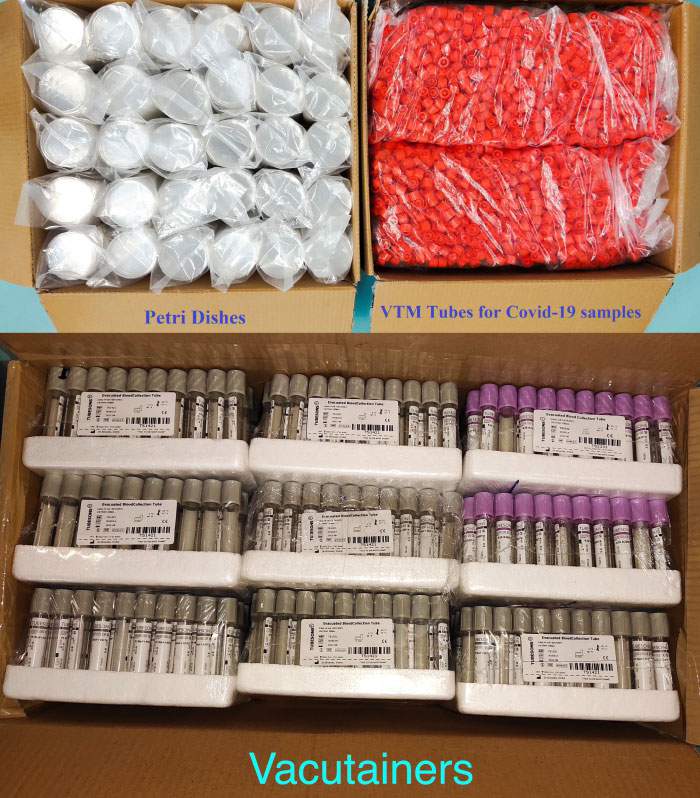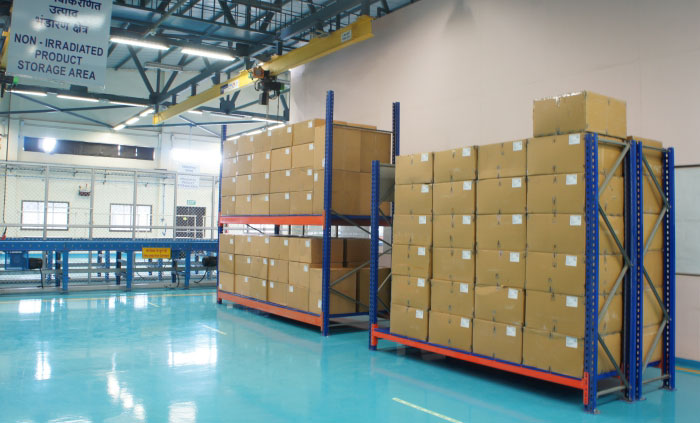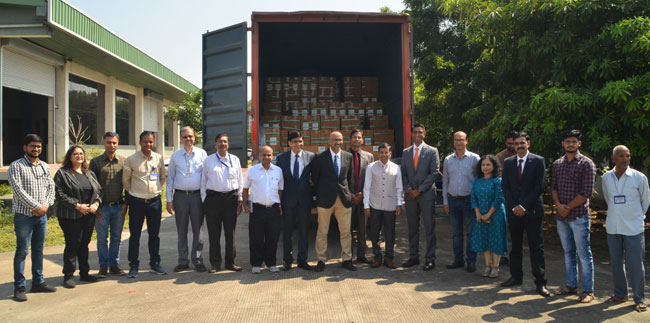|
E-beam
Sterilization : A Unique Opportunity For Indian
Medical Device Industry
E-beam radiation refers to machine-generated
high-energy electrons. As electrons have mass &
charge, the penetration is limited in interaction
material. The penetration depth is directly
proportional to energy of electrons and inversely
proportional to the density of the interacting
material. The medical devices are normally made of low
density materials, whose packaging density lies in the
range of 0.1 to 0.2 g/cc. The 10 MeV electron beam has
adequate penetration depth for medical devices. The
penetration depth for two sided irradiation of these
medical devices is typically 400 mm to 600 mm.
However, the medical devices/ implants made of high
density metals pose challenges for electron beam
irradiation and need to be evaluated on case to case
basis.
Are there any effect on
polymeric components of medical devices exposed to
e-beam sterilization particularly with respect to
causing aging as compared to Gamma ray sterilization?
Electron beam is eco-friendly, secure and its
application is increasing at a rapid rate.
Sterilization by electron beam is equivalent to
sterilization conventionally done by gamma radiation.
Similar to gamma radiation, e-beam irradiation can
influence properties of the polymers. In some
polymers, electron beam cause cross linking at
molecular level and enhance the molecular mass of the
polymer. The three dimensional network formed by cross
linking, improves mechanical properties (tensile
strength, impact strength, toughness, wear resistance,
temperature resistance etc.) to provide more stability
to the medical device. For example, e-beam cross
linked polymers are widely preferred for making knee
and hip implants. In some polymeric material
discolouration/degradation of material is observed
with e-beam irradiation, as observed with gamma
irradiation, but the magnitude of discolouration/degradation
with e-beam irradiation is relatively low. The medical
devices made of PVC, PMMA, polyethylene, polyamide,
polycarbonate, polyester, polystyrene, polyurethanes,
thermosets etc. exhibit good to excellent tolerance
for e-beam irradiation in sterilization dose range 25
-50 kGy.
Please explain the
formalities to be undergone by Industry particularly
with respect to regulatory licences.
Medical device manufacturers willing to avail the
e-beam radiation sterilization service can apply by
sending the service request form to us. Subsequently
RRCAT team will proceed for client registration and
detailed product dose mapping & feasibility study.
Once the product qualifies the feasibility study, a
unique product registration number is issued to the
client’s product which is used while bulk radiation
processing of customer product.
From As per Medical Device Rule (MDR) 2017, client
shall obtain “Loan License” from State FDA/CDSCO in
Form no. MD-6 for Risk Class- A & B and submit the
original copy to RRCAT to avail commercial irradiation
service. RRCAT provide all possible guidance /support
to client in obtaining loan license from FDA/CDSCO.

5 Medical devices standardised for E-beam
sterilization
What kind of Medical Devices
are compatible with e-beam sterilization?
Electron beam is eco- friendly and unlike EtO, does
not leave any harmful residue in the sterilized
product. Though e-beam can be used to sterilize all
risk class A/B/C/D products. Currently, RRCAT facility
provide sterilization service to Risk Class A & Risk
Class-B products. Various kind of catheters, syringes,
surgical dressings, gauge pieces, eye implants,
collagen sheets, packaging material, body implants etc
can be sterilized with electron beam. Detailed dose
mapping study of each product is required for process
development & validation before doing large scale
commercial sterilization.

The first batch of 125 boxes of VTM tubes and Petri
Dishes irradiated at ARPF

RRCAT has signed a MoU with med tech multinational
company Becton Dickinson to sterilize their product
Venflon Pro. The first consignment of 3.15 lakhs
devices contained in 630 cartons were dispatched after
sterilization on 20th October 2022. This public
private partnership (PPP) will serve as a role model
to transfer the benefits of indigenous developed
technology to the common man to fulfill the dream of
the Hon'ble Priminister's vision to make AtmNirbhar
Bharat. |
